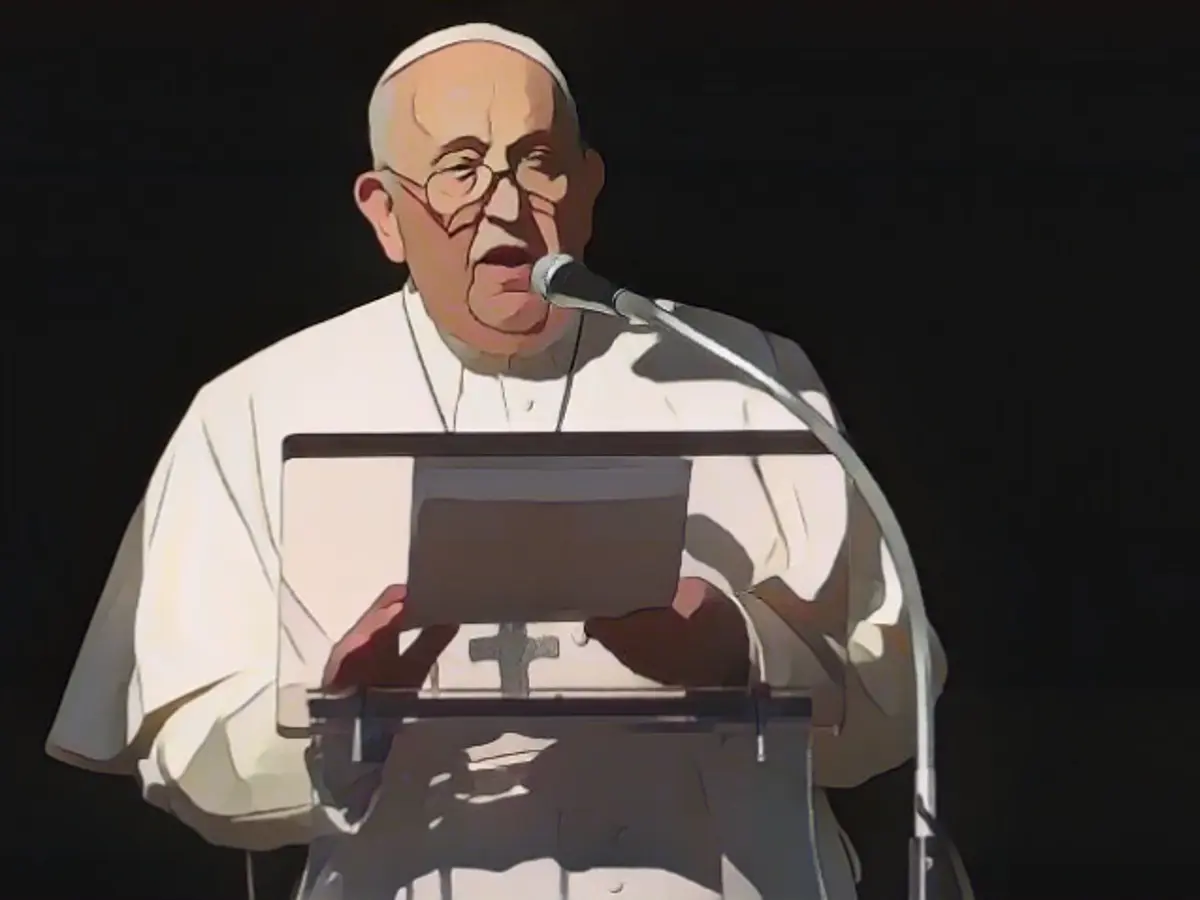Iconic shift in Catholic Church's approach to LGBTQ+ individuals
Over the past decade, the Catholic Church has witnessed a significant shift in its stance towards LGBTQ+ individuals, with Pope Francis leading the charge in challenging conventional views and promoting a more inclusive approach.
His decision to bless same-sex unions marked a momentous development in his advocacy for the LGBTQ+ community, building upon prior, incremental progress. This move, widely celebrated by many who have long sought reform, is likely to spark controversy within the Church, with some staunchly opposing his forward-thinking vision.
The Church teaches that sexual activity is only permissible between married heterosexual couples. The official doctrine characterizes homosexuality as an "intrinsic disorder," with some progressive Catholics seeking a revision of this term. However, LGBTQ+ individuals should be treated with respect, sensitivity, and a commitment to avoiding any form of unfair discrimination.
Pope Francis, although not altering the Church's doctrine, has repeatedly emphasized this emphasis on compassion and inclusivity. To a survivor of sexual abuse by a priest, he remarked, "God made you this way. God loves you this way." He has also praised those who champion the rights of the LGBTQ+ community within the Church, which often faces resistance within its ranks.
Beyond his words and actions, Pope Francis' approach to LGBTQ+ issues entails a more substantial shift within church doctrine. He endorses the recognition of same-sex unions, a stance the Vatican has historically opposed. He also previously spoke out against the criminalization of homosexuality and, following a trip to Africa, voiced his support for LGBTQ+ rights on the continent.
This recent blessing declaration does not alter the Catholic Church's stance against same-sex marriage, but it does signify a new chapter for the Church in reaching out to LGBTQ+ individuals. For Pope Francis, the goal is to reconcile long-held teachings with the daily realities of people's lives. This evolution in Church doctrine was only possible as Pope Francis emphasized that the Church should not become inflexible or condemning, but instead, extend warmth and welcome to all.
In its most recent decision, the Church stresses that "the care of God should not be denied or forbidden to those who seek a blessing in various situations of their lives." The notion of grace extends to those who may not confess their sins but recognize their faults alongside all humans.
Nearly every Christian denomination has grappled with profound disagreements over the blessing and marriage of same-sex unions. The Church of England has started to bless same-sex unions, while officially not sanctioning same-sex marriage.
The Catholic Church is typically regarded as one of the faiths least inclined to change its stance on blessings, as Its guidelines for blessings stipulate they should be informal and not occur during services.
Yet, pressure on the Catholic Church to reconsider its stance on blessings for same-sex unions continues to grow. In Germany, some priests are already conducting ceremonies for the blessing of same-sex couples.
Bishop Georg Bätzing, the president of Germany's bishops' conference, welcomed the latest decision, commenting, "." Cardinal Blase Cupich, the archbishop of Chicago and a faithful ally of Pope Francis in the US Church, labeled it "a step forward."
However, resistance to this development is not limited to conservative circles. Bishop Joseph Strickland, recently removed from his position in Texas by Pope Francis, called on bishops to refuse the blessing. Some may choose to decline the request.
Pope Francis is unlikely to be deterred by such opposition or shy away from addressing controversial topics.
During a recent ecclesiastical assembly in the Vatican – a synod – an internal debate on the use of the term "LGBTQ Catholic" evolved in avoiding the term, acknowledging that the Church's teaching on sexuality and identity has yet to sufficiently consider human experiences and scientific findings. The acknowledgment suggests that future changes in Catholic sexual education, addressing homosexuality, could be on the horizon. Pope Francis pursued this path cannot be guaranteed, but his pastoral openness towards LGBTQ+ individuals lays the groundwork for future significant reforms.
Footnotes
: various sources, including , : CNN, : Pope Francis' official statements on LGBTQ+ issues, compiled by the Vatican News. : speeches and addresses given by Pope Francis, as reported by Catholic News Services and Vatican News. : Pope Francis' remarks to bishops gathered for the synod on the family. : Catholic Church guidelines on blessings and sacraments, available on the Vatican's website. : interviews with Cardinal Blase Cupich and Bishop Georg Bätzing, reported in various media outlets. : Bishop Joseph Strickland's official statements and interviews, as reported by Catholic News Agency. : discussions during the Synod of Bishops on Youth, reported in Catholic News Agency and Vatican News.








